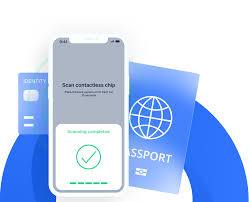Table of Contents
ToggleIntroduction
The NFC Forum is organizing a webinar that will bring together industry experts to explore how NFC technology can be utilized to strengthen the Digital Product Passport (DPP) initiative. This key sustainability effort aims to optimize product lifecycle management. Read on for an overview of this essential development in sustainable practices.

What is a Digital Product Passport (DPP)?
A Digital Product Passport (DPP) is a digital tool designed to store information about a product’s sustainability aspects, including circularity and value retention. This information facilitates the effective re-use, remanufacturing, and recycling of the product. Currently, the primary designs for DPP data are focused on cloud-based systems, with unique identifiers like QR codes or NFC tags linking products to their respective DPPs. Just as one would scan a QR code at a restaurant or tap an NFC-enabled business card, anyone can access a DPP stored in the cloud via these interfaces.
Objective of the DPP
The main goal of the DPP is to provide relevant stakeholders with access to detailed information about how a product and its components can be recycled, repurposed, or remanufactured. This enhances the product’s lifecycle and material reusability. The DPP supports various parties in verifying compliance with sustainability standards, creating opportunities to recover valuable materials, and extending the life of products and their components. Initially pioneered in the European Union (EU), this approach aims to underpin the global circular economy by promoting sustainable consumption, reducing waste, and retaining resources within the economy for as long as possible.
Current Status of the DPP
Progress in the field of DPPs is advancing rapidly. The publication of ISO 59040 presents a global methodology for improving the accuracy and completeness of circular economy-related information. This standard is applicable to all types of organizations and streamlines the exchange of data across the supply chain through a Product Circularity Data Sheet. Concurrently, CIRPASS is preparing to pilot and deploy EU DPP programs in sectors such as electronics, batteries, and textiles. Funded by the EU, CIRPASS is facilitating collaboration among stakeholders to define the competencies, requirements, and data models necessary for large-scale DPP implementation across various industries.
Future Plans for DPP
The European Union is expected to introduce legislation in 2024 that will require digital product passports for electronics, batteries, and textiles, with an anticipated implementation timeline of 2026-27. This timeframe will allow businesses to adequately prepare for the new requirements. Subsequent legislation will expand DPP implementation to other industries as part of Europe’s commitment to becoming the first climate-neutral continent by 2050. Given the global emphasis on sustainability and climate change, it is anticipated that other regions will adopt similar measures following the EU’s lead.
Conclusion
The NFC Forum’s upcoming webinar on Digital Product Passports illustrates the significant potential of NFC technology in enhancing product lifecycle management and sustainability. As legislation progresses and global initiatives align, the implementation of DPPs across various industries will support the transition to a more sustainable and circular economy.
